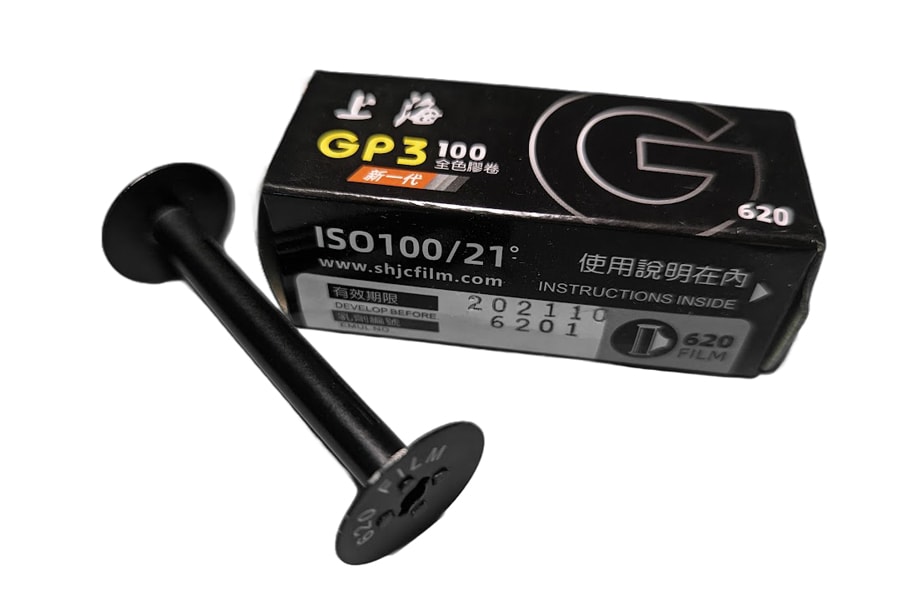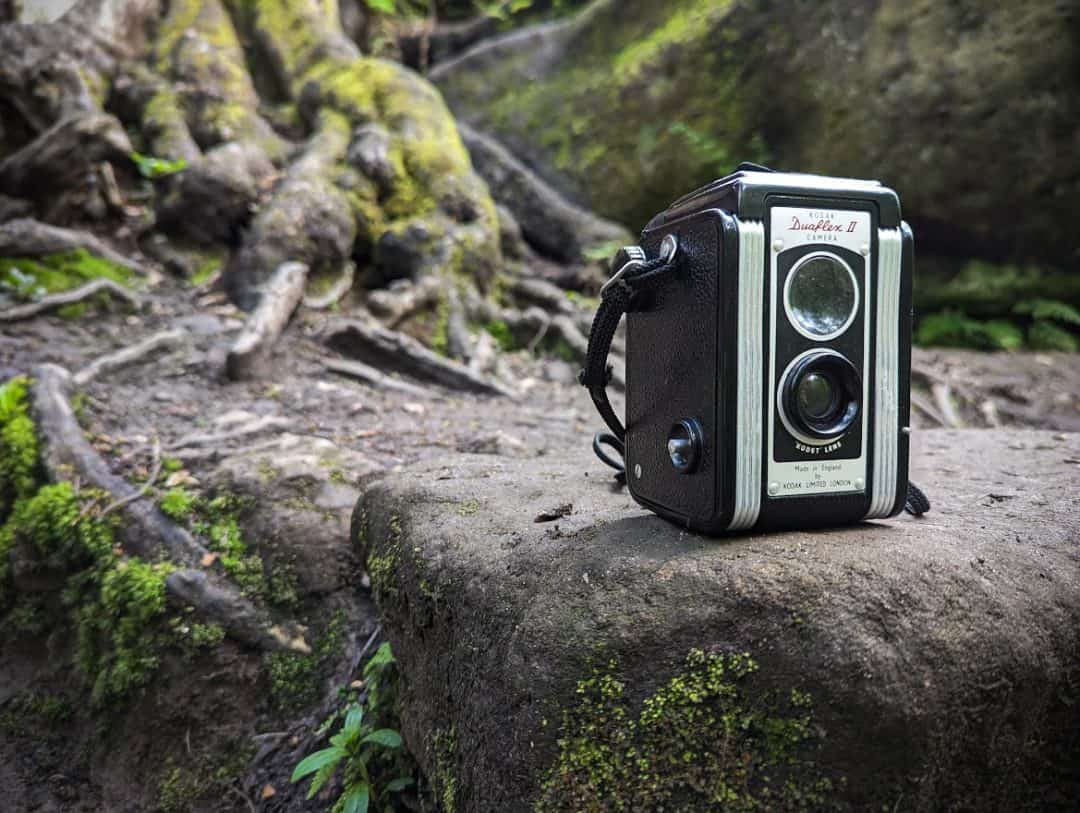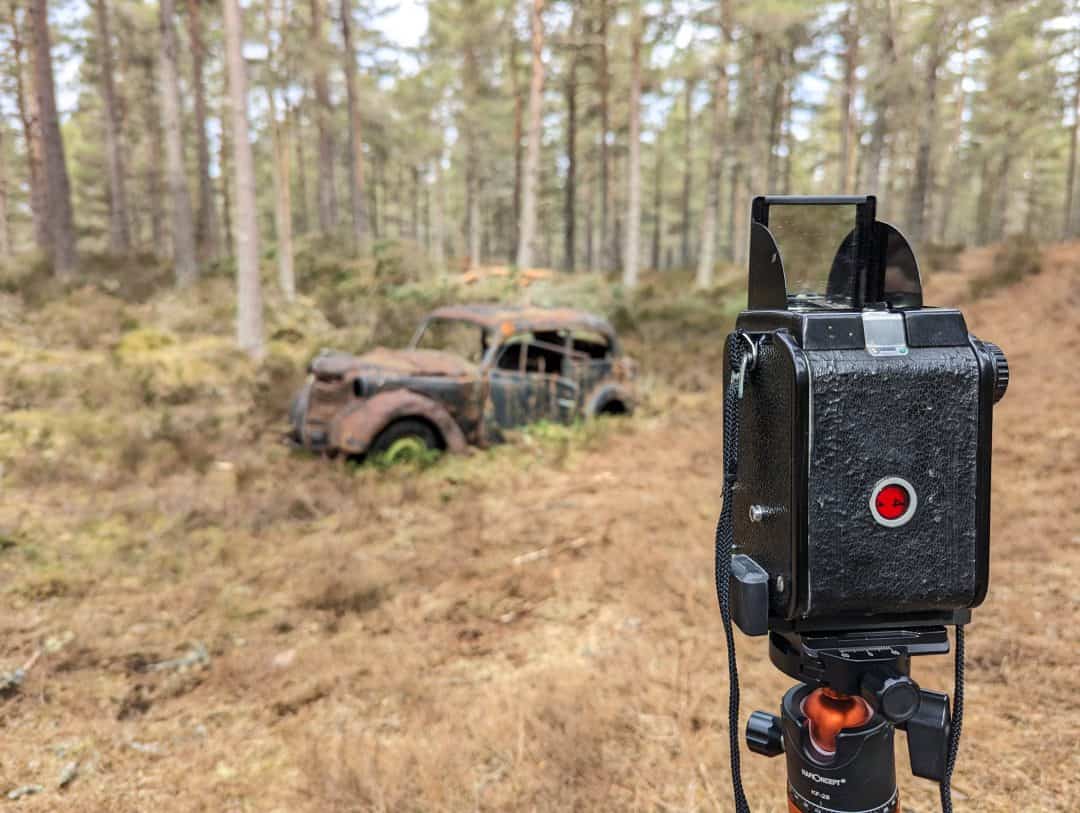Support me on Patreon for early access previews, rewards and giveaways!
Contact Me
Or use the contact form below.
Support me on Patreon for early access previews, rewards and giveaways!
Or use the contact form below.
Shanghai GP3 100 is a black and white panchromatic film. Produced in China, this is one of the most affordable medium format films on the market. A good starting point for my first foray into this format, especially given my camera of choice (as you will soon see!). The film gives a very old-fashioned feel to the photos, something which again hits the mark for me as a test roll for a rather basic old-timer camera. In terms of performance and aesthetics, this film is often compared to Kodak Plus-X.
This is where Shanghai GP3 100 popped up on my radar. After acquiring a camera that requires 620 film, I was looking into options. A ready-spooled and cheap 620 film jumped out at me as being just the thing I needed. So without much hesitation, I ordered some.
| Type | BW | Price | Low |
| Brand | Shanghai (Jiancheng Photography) | Contrast | Medium / High |
| ISO | 100 | Shadow Detail | Medium |
| Format | 35mm, 120, 127, 220, sheet film | Grain | Low / Medium |

Pros
Cons

Several years ago, my stepdad gave me his father’s old camera. It sat on my mantlepiece for a year or so before being packed into a box for a house move. The poor thing sat there for a few years, in the good company of my grandfather’s Zenit E. While the Zenit E has seen a lot of action recently, the poor Kodak Duaflex II sat on a shelf looking cool but not doing much.
This 1950s medium format camera (frustratingly) takes 620 film. After some research online, this film type is essentially the same as 120, but the spool is a few millimeters shorter. I have several options;
I decided to go for the cheapest and easiest approach; pick up some cheap GP3. I wasn’t even sure this camera would work. After a quick check of the lens (no fungus), shutter (it fired), and body (seemed light-tight!), I placed my film order and waited patiently for it to arrive.
My Kodak Duaflex II has a very basic lens; a meniscus lens, with no ability to focus. Consequently, I could only shoot things that were over 15ft away, based on the original instruction manual guidelines. The camera also has a set aperture of around f/14 or f/15, and the shutter speed options are limited to “instant” and “bulb”. “Instant” is estimated to be somewhere around 1/30 to 1/45, probably toward the slower end, given the camera has never had a disassemble/clean. There is also no shutter cable attachment, so I am unsure how useful the bulb mode would be, so I shelved that idea for now. Hand shooting it is!
Add in the films 100 ISO, I decided to shoot some large solitary subjects in the great outdoors of Scotland!

Personally, I love the vintage feel of this film! The Kodak camera has a very noticeable focus falloff, with only the center being in focus. In focus is perhaps a little generous, as all the photos were quite soft. I am fairly certain that this is a feature of the camera lens, not the film! Either way, I kind of like the dreamy effect this gives the photos.
The best contrast was achieved at the abandoned boat, thanks to bright overhead sun. The car and pyramid were shot on overcast days, giving a little less contrast. I did see some shadow detail loss, specifically in the trees/grass in the pyramid shots, but this was partly influenced by the fact that these are slightly underexposed.
You will notice there are only six photos here. In a hurry to finish the roll, I pushed my luck and shot a shaded car graveyard to use up the film. The sun was setting, and I sort of knew that they would be underexposed, but I tried my luck anyway. Unfortunately, the photos came out very dark. So dark you can’t see anything, actually. Whoops.
Overall, I was very happy with the performance of this film and pleasantly surprised. Going forward, I can see that I will be using this film as my standard test roll fodder. I would also be very happy to use this in more vintage cameras, especially if I venture more into the retro world of box cameras.
Made it this far? Hurrah! Here are the shots from my first outings with Shanghai GP3 100 from this test roll. Enjoy!
What photograph caught your eye the most? How did this location make you feel? Do you have a question? Let me know by leaving a comment!
I add new content every week, ranging from exciting new locations to blog articles about my road trips. My beautiful newsletter will bring my photographic adventures direct to your inbox!
Your email address will not be shared, or publically displayed. I will only use your data to send you the newsletter, as outlined in the Privacy Policy. You can unsubscribe at any time, via the opt-out link included in every email.
1 - Please do not ask for location addresses, see FAQ.
2 - Your email address will not be shared, or publically displayed. I will only use your data to reply to your message, as outlined in the Privacy Policy
Beautiful review. I used Shanghai a long time ago and then it was discontinued but returned back with better quality and absolutely stable.
Thanks for taking the time to leave a comment Victor! I do hear the new stock is an improvement, I am certainly very happy with it so far. Will pick up some 35mm at some point as well, but that seems harder to get in the UK than the 120/620
I love how the film adds to the sense of a time long ago. Nice shots. Even though they were “test” shots.
Thanks Geoffrey! It was good timing with the trip away and some nice subjects. I have a second roll from this camera I will be sharing soon, colour film this time but a very interesting desaturated stock.
Interesting film test / review. I had never seen the “Secret Scottish Pyramid” before, just had a google to read about it. So great to see a vintage camera put to good use. Out of interest, how do you scan your film? I used to have an Epson scanner that could scan 35mm film or slides, it worked well, but sadly it broke and was not repairable, and an equivalent doesn’t seem to be available any more.
Thanks Peter, it was so nice to try out another old family camera (and even nicer to discover the camera works nicely!). These were scanned by the photolab, but I am starting to scan my own negatives going forward from here. I will be going the camera scanning route, as I also shoot a lot of subminiature film (16mm) and I think this set up will get the best quality out of those tiny frames. I bought a 1:1 90mm macro lens and have some masks for various film sizes 3D printed, so all ready to test it out!